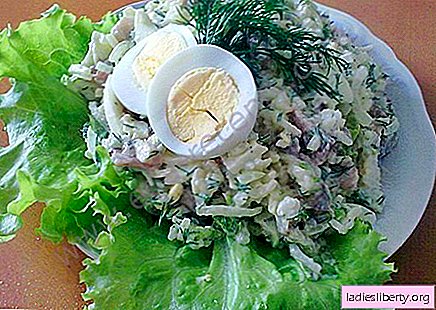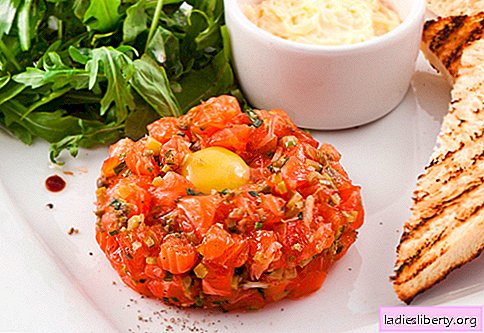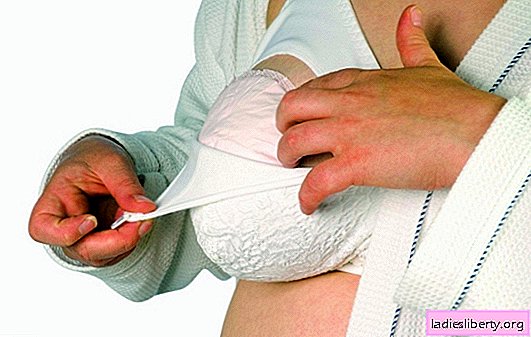
Peanuts, another name for which is peanuts, are legumes. The benefits and harms of peanuts have attracted the attention of a large number of nutritionists. The popularity of peanuts as a food product is increasing every year.
Represents in the form of a pod with a rough coating, inside of which there are a yellow fruit.
The benefits of groundnuts
Experts highlight the many positive properties of peanuts on the human body.
1. This food product is very nutritious. The fruits of peanuts have a high concentration of proteins and vegetable fats, which have a good degree of digestibility. 200 grams of peanuts contains the daily norm of many vitamins and minerals, in particular phosphorus. Noteworthy is the fact that peanuts have no cholesterol at all, which is considered a huge plus for lovers of a healthy diet.
2. Linoleic acid, which is part of this food product, reduces the risks of developing sclerosis. With a sufficient concentration in the human body, the synthesis of arachidonic acid is ensured. In turn, it reduces the concentration of cholesterol in blood vessels and improves the protective mechanisms of cells.
3. Groundnuts are known for increasing the coagulation of blood cells. Medical experts advise adding peanuts to people with hemophilia in their diets.
4. The benefits of peanuts are also in the prevention of heart and vascular diseases, as well as in the breakdown of fat cells. Among women, this food product is very popular in weight loss diets.
5. Groundnut prevents the occurrence of pathologies of an infectious nature. Immunity is strengthened. Tiptophan, which is found in peanuts, synthesizes serotonin. An increased concentration of this substance helps a person to get out of depression and recover from a nervous breakdown. People Eating Peanuts Daily
6. Fiber peanuts significantly reduces the risk of a malignant tumor of the intestine, and also stimulates the digestion process, promotes the removal of harmful substances from the human body.
7. It has been officially proven that the benefits of peanuts are also to stabilize the hormonal balance. In turn, this helps to get rid of infertility both in the male half of the population and in the female. Folic acid, which is contained in this food product, reduces the likelihood of developing abnormalities in the fetus if the mother eats peanuts during pregnancy.
8. Food products that are made from peanuts also have many beneficial properties. Peanut butter includes a wide range of different vitamins and minerals. Milk from groundnut flour has a positive effect on the organs of the gastrointestinal tract. Medical experts recommend it for gastritis and ulcerative foci in the esophagus. Peanut pasta will be a great addition to breakfast and provide a person with energy for the whole day.
9. The benefits and harms of peanuts when roasted interest many people. During the roasting process, the concentration of antioxidants in the food product increases significantly, thus increasing the benefits for humans. Roasting also prevents mold during the long shelf life of peanuts.
10. Daily use of peanuts in small volumes positively affects memory centers, concentration of attention, hearing organs, and the functioning of the organs of the reproductive system also improves.
11. With a cough of a chronic nature, rice porridge with the addition of peanuts is considered an effective method of treatment. This recipe can be used for both children and adults.
12. When dried, the vitamins contained in peanuts are not destroyed, but the shelf life of peanuts is no more than 12 months. It should be borne in mind that dried peanuts have a high calorie content, which is explained by a decrease in moisture. This dried food product has a calorie content of 661 kcal per 100 grams. Fresh peanuts have 550kcal.
However, in addition to the positive effects, peanuts, like any other food product, have negative aspects.
Hazelnuts
1. Medical experts believe that the harm of peanuts is not inferior to its benefits. The use of peanuts can provoke an allergic reaction, the clinical manifestations of which are itching of the skin, nausea, vomiting, swelling of the throat. For this reason, children are not recommended to give more than 9 nuts at a time.
2. A high concentration of protein cells provokes the development of arthropathy, arthrosis and similar pathologies.
3. If the technology of growing peanuts has been violated, or the processing process has not been followed, aflatoxins begin to accumulate in the peanuts. Before buying and eating peanuts, it is strongly recommended that you inspect the food product for mold, and also a musty smell. The best option would be to purchase peanuts in the store, and not in the market.
4. At the same time, the benefits and harms of peanuts lies in its calorie content, per 200 grams of product 1100 kilocalories.
5. Groundnuts are also not recommended for people with varicose veins of the lower extremities. This is explained by the ability of peanuts to increase the degree of blood coagulation.
6. The process of roasting peanuts reduces the concentration of nutrients, and roasted peanuts are carriers of E. coli, tuberculosis and similar diseases. For this reason, it is recommended to engage in the roasting process yourself.
When using peanuts, one should take into account not only its positive properties, do not forget about possible contraindications and harm to the body. When buying peanuts for the prevention or treatment of pathology, it is recommended to consult a medical specialist.
Consumption rate for the benefits of peanuts
The daily amount of peanuts is determined individually, depending on the well-being of the person, the presence of contraindications and recommendations for the use of this food product.
The average concentration in an adult in the absence of contraindications is about 50 grams of peanuts. It is recommended that you do not consume the entire daily intake at a time; it is better to divide the number of peanuts daily into 2 to 3 meals.
Up to 3 years, a person is not recommended to eat peanuts. Medical experts attribute this to a high risk of an allergic reaction. For children under 18 years of age, the optimal option in the absence of chronic pathologies and other contraindications is considered 25 grams.
In conclusion, the benefits and harms of peanuts
Fresh peanuts without traces of mold, mildew, odorless are a source of calories, energy and many vitamins. Daily use of peanuts within normal limits strengthens the human immune system, reduces the risk of many pathologies. Peanuts stimulate the functions of the reproductive system, help cure infertility, stabilize hormonal balance and preserve the nervous system.
If an overdose is avoided in the absence of contraindications, it will be possible to get the maximum benefit from this food product.











